aNewDomain.net — The Google Science Fair for 2013 has ended. This is the third consecutive year for the online competition, whose participants are 13-18 year old students. Read on for in-depth pictures, analysis, and coverage.
The 15 finalists in the third annual International Google Science Fair all hailed from these points on the globe: Singapore, Greece, USA, Turkey, Australia, Canada, and Russia.
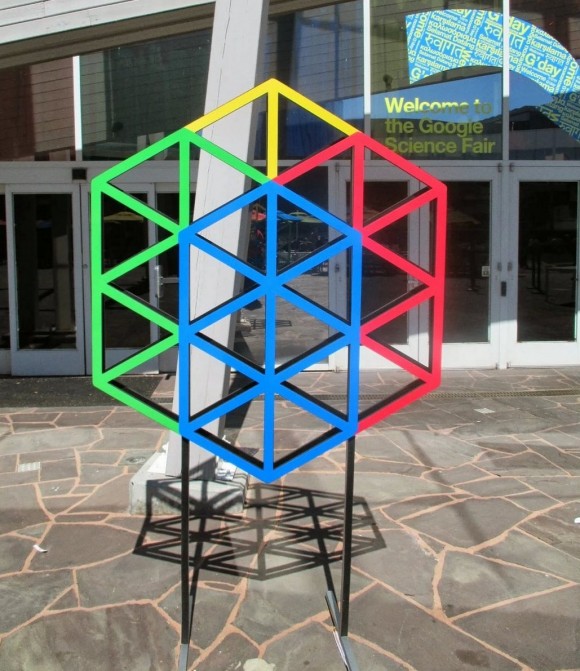
All Photos by Richard Hay
The Finalists
The finalists are (name, age, location, project):
- Alex Spiride, 13, Texas, USA – Squid Jet: Underwater Propulsion
- Kavita Selva, 13, Texas USA – A New Kind of Magnet
- Tina Kabir, 13, Lisa Sosnova, 14, Moscow, Russia – A Universal Measuring Apparatus
- Venkat Sankar, 14, California, USA – Research on Endangered Species
- Viney Kumar, 14, Wahroonga, NSW, Australia – A Signalling System for Emergency Vehicles
- Ann Makosinski, 15, British Columbia, Canada – A Battery-Free Flashlight
- Elif Bilgin, 16, Instanbul, Turkey – Creating Bioplastics from Banana Peel
- Shrishti Asthana, 15, Chandigarh, India – A Green Method to Clean Water
- Valerie Ding, 16, Oregon, USA – Enhanced Solar Cells
- Tricia Lim, 15, Kang Yi Xi, 16, Samantha Kwok, 16 – Singapore – A Treatment for Liver Inflamation
- Charalampos Ioannou, 18, Athens, Greece – A Movement Enhancing Glove
- Elizabeth Zhou, 17, Oregon, USA – An Early Diagnosis System for Melanoma
- Eric Chen, 17, California, USA – A New Anti-Flu Medicine
- Esha Maiti, 17, California, USA – A Better Understanding of Tumors
- Vinay Iyengar, 17, Oregon, USA – An Algorithm for Safer Encryption
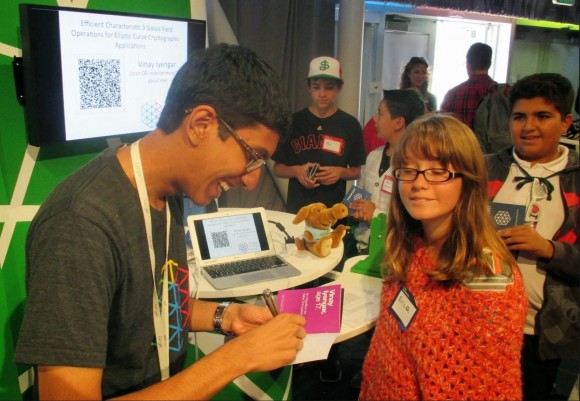
Finalist: Vinay Iyengar
The finalists, brought to Google headquarters in Mountain View, were practically giddy at making it to the final round of the competition. I met and asked several of them where they were when they learned they had been chosen as a finalist — there were some interesting responses.
Elizabeth Zhou of Oregon, also involved in the Intel Science Fair, was at Intel in a cubicle during the Google Hangout on Air, where the finalists were announced. When she found out she was a finalist she wanted to scream out with glee. That would have been quite disruptive, being that she was in a cubicle farm, so instead she called her parents. They were were understandably thrilled with the news.
Alex Spiride of Plano, Texas, watched the Hangout on Air as the pictures of the finalists were shown. He did not see himself and was initially disappointed that he had not made the finals. But then they announced his name. It turns out they had shown an older, darker picture of Alex that Google had gotten from his school. He had missed it in the middle of the slideshow.
Kativa Selva of Houston, Texas was in her school library waiting for the news. Her school blocks all social media so she could not join the Hangout to see if she had made the finals. She was pacing anxiously until she got the email 20 minutes after the announcement that she had made the finals. Her quiet quarters, like Elizabeth, did not allow the shout of joy that bubbled inside her, so she celebrated quietly.
The girls in Singapore, Tricia, Yi Xi and Samantha, watched the Hangout at midnight local time when the announcement was made. They were flown to America and beside themselves.
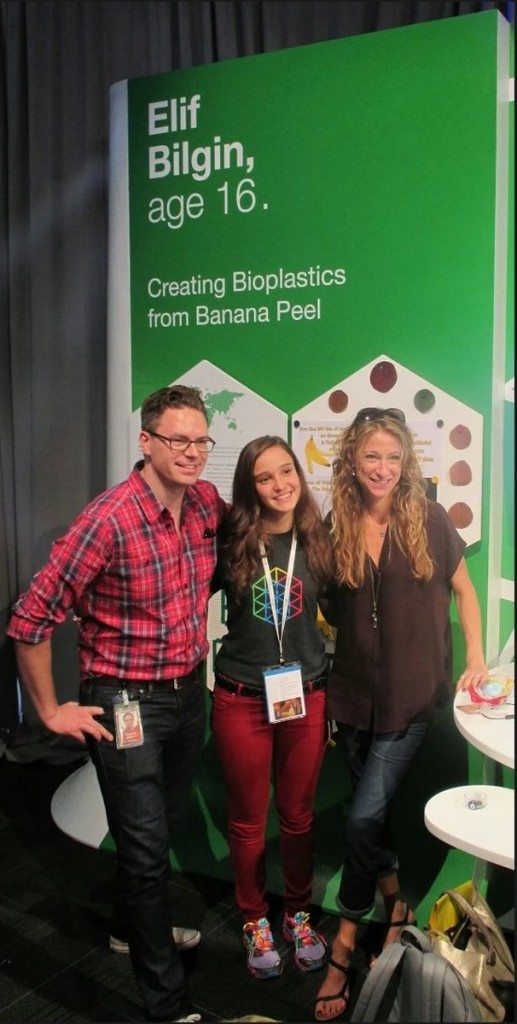
Finalist: Elif Bilgin
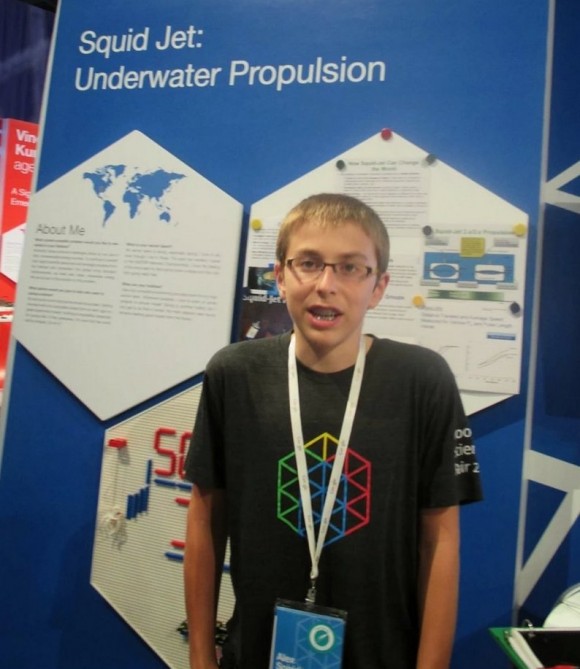
Finalist: Alex Spiride
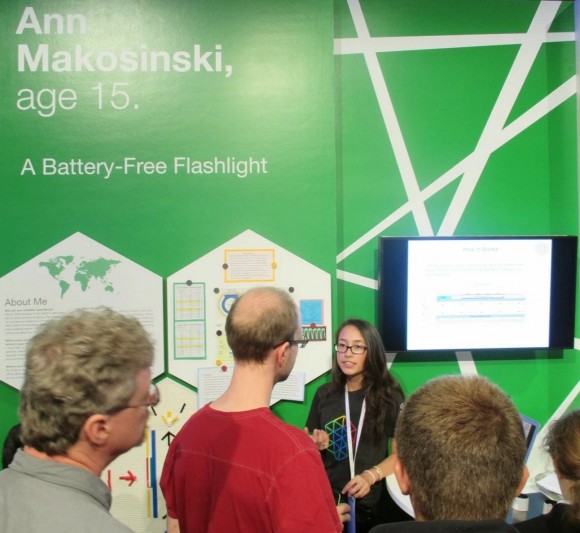
Finalist: Ann Makosinski
Some of this year’s Fair staff were previous contestants. Shree Bose, the 2011 winner for the 17-18 age group, is now in her second year at Harvard. She did her project on testing for ovarian cancer in Fort Worth, Texas.
Shree reminisced how in 2011 the Google Science Fair was in a small conference room with all fifteen contestants. The room was packed. She expressed a tinge of envy at the elaborate spread in Charlie’s Cafe in Building 40 at the heart of the GooglePlex, showcasing this year’s finalists, but was excited to see how much bigger the competition had gotten.
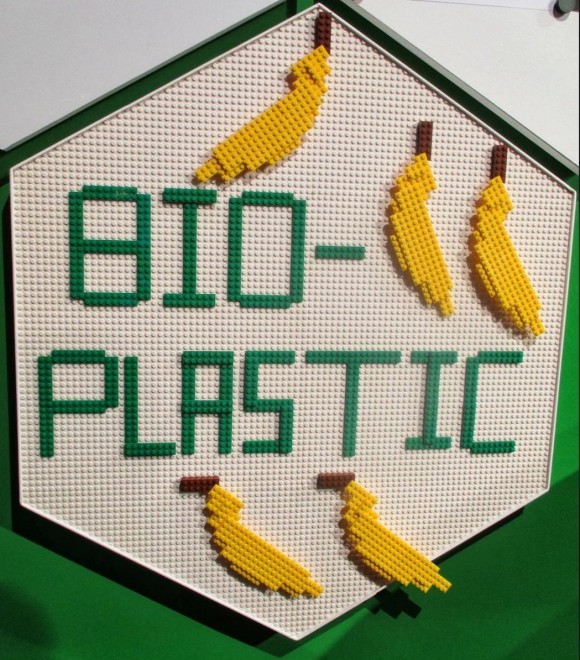
Lego was one of the corporate sponsors for the Science Fair this year. Each contestant’s project included a custom Lego hexagon that represented the core content of the project. Part of the fun of the event was seeing how each project designed its Lego hexagon.
The contestants were also there to explain their projects, and several local students were present to participate as well. Googlers were invited to peruse the displays and interact with the finalists.
There were also “Google Science Fair Passports” that listed all 15 finalists and their projects. Each passport had space for stickers and autographs.
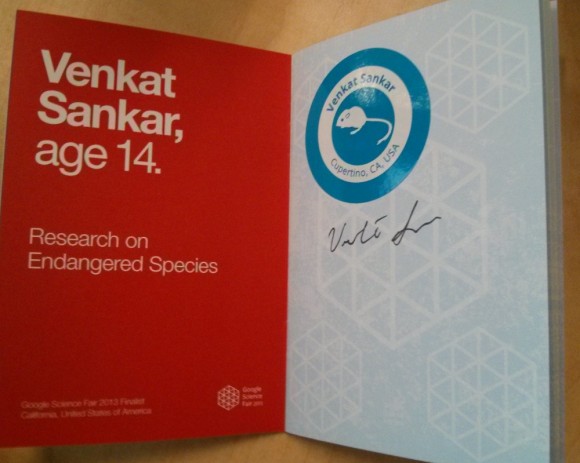
The Projects
A couple of interesting stories from the finalists stood out.
The Singapore team said they got their liver tissue and the lab space to conduct their research by asking professors at the University of Singapore for help. They also addressed separate scientific issues like water shortages in Singapore and the effort to filter and recycle the liquid waste.
The resulting bottled water is purified, clean and branded as “New Water.” But people had a mental block about drinking this water. They took the New Water from school, brought it home and their mothers used it to water the house plants — a valid, if not the intended, use.
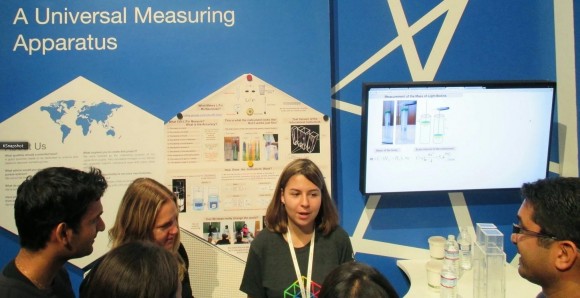
Venkat Sankar presented his study on the effect of Thermal Solar mirror deployments on the habitat of the endangered Kangaroo Rat. Large energy companies have placed many roadblocks for thermal solar farms, using the endangered species act as a way to prevent the farms from coming online.
Venkat did his study and found that the Kangaroo Rats are affected negatively by the mirror farms.
However, he also conducted experiments with pockets of empty cells in the mirror farm that can be used as animal conservancy spots, allowing both the mirror farm and the rodents to coexist in harmony.
His research, rather than being for or against the thermal solar fields, showed how they could be laid out so they would not destroy the habitat of the endangered Kangaroo Rat. A great example of practical analytical problem solving.
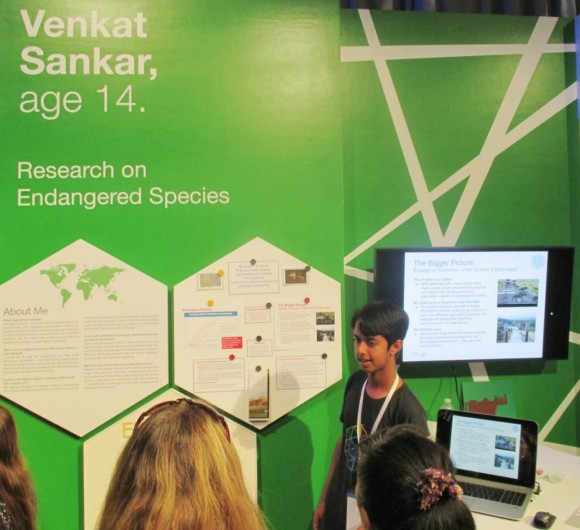
Finalist: Venkat Sankar
There are videos, contestants details, specifics about each project, and past results at http://www.googlesciencefair.com
In short, these rock stars are the youth of the world that love science — something everyone can agree is worth celebrating. Check out the camera crew focusing on the finalists.
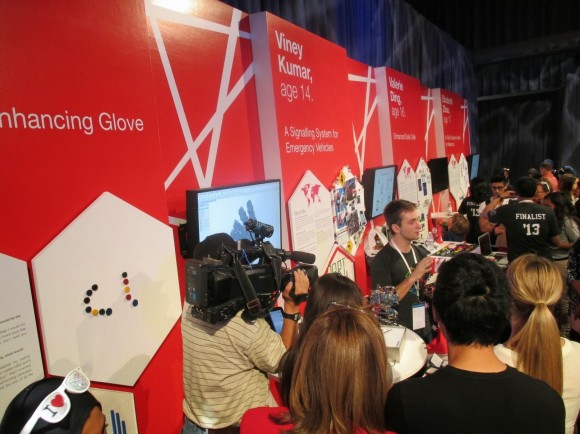
The Awards
All in all it was an exciting event that built up to the final announcement at 19:00 PDT September 23, 2013. At that point the final overall winner, as well as the winners for the three age groups (13-14, 15-16, 17-18), were announced.
The Awards announcement featured the band cdza who make musical, experimental science videos on YouTube. The ceremony was emceed by Adam Rutherford. Live viewing parties were held from Australia, China, and Brazil.
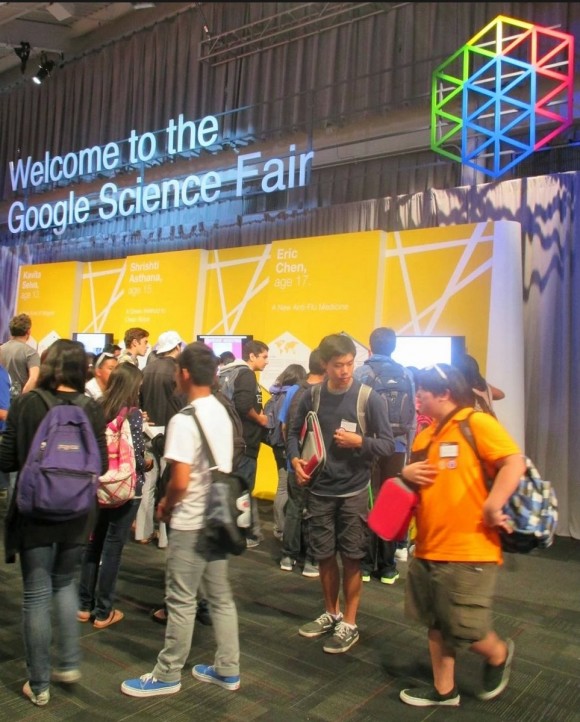
Thousands of applicants applied from 120 countries. The 15 finalists represent the best of the best of the best.
Scientific American awarded a $50,000 “Science in Action” to Elif Bilgin for her project “Creating Bioplastics from Banana Peels.” She spent two years of failures before hitting on the proper formula. Elif also received the Google Science Fair Voter’s Choice Award.
The winners of the age categories get to select one of the following:
- Life of an International Physicist at CERN
- Life of a LEGO Designer at legoland in Denmark
- Life of a Google Engineer in Mountain View
- 10 day trip to the Galapagos Islands
Pretty great awards for teenagers, I think.
The winners are:
- Age 13 – 14: Viney Kumar – A Signalling System for Emergency Vehicles
- Age 15 – 16 : Ann Makosinski – A Battery-Free Flashlight
- Age 17 – 18: Eric Chen – A New Anti-Flu Medicine
- Overall Winner: Eric Chen – A New Anti-Flu Medicine
As a Google Engineer I typically bow out of articles that are related to Google. However, in this case, who cannot support contests and prizes for young people engaged with developing solutions to address the world’s many problems? Plus, the competition allows regular students and kids to be excited by science, learning and how things work from all over the world.
For aNewDomain, I’m Richard Hay.
Richard Hay is the senior science editor at aNewDomain.net. He’s a staff engineer in network testing at Google. Email him and let him know the sort of stuff you’d like him to cover here onaNewDomain.net. He’s Richard@aNewDomain.net and +Richard Hay on Google+.

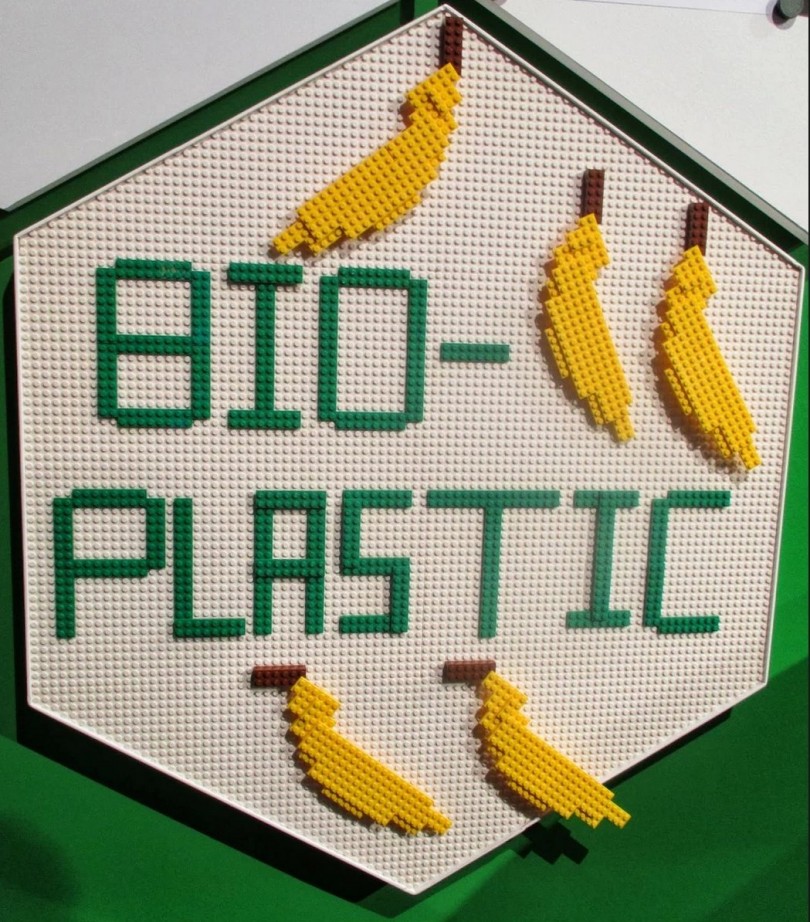




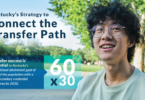







Cool post!